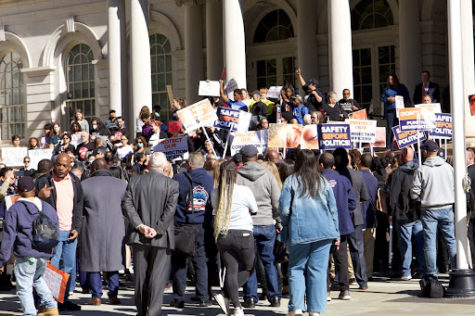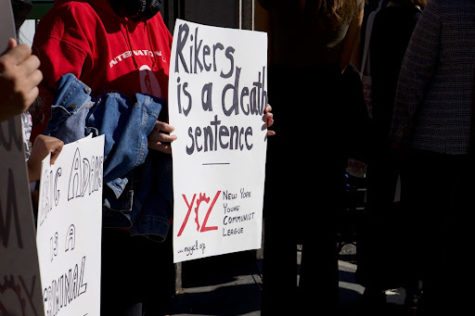
NEW YORK, NY —Hoards of people have come together on the marble steps of New York City Hall at 10 a.m. on Sept. 28 to rally for the passing of Intro. 594 (otherwise known as the HALT Act) which would ban the use of solitary confinement in New York City jails.
Intro. 594 has the supermajority backing. Councilwoman Shahana K. Hanif, representing the 39th District, voiced support for the bill before the council went into session, calling the practice of solitary confinement “barbaric.”
“It has been a years-long organizing effort, and finally today, we have our hearing,” Hanif addressed the crowd of protestors and reporters. “We are going to win. We are going to end solitary confinement.”
Rabbi Lev Merrowitz Nelson, the Director of Leadership and Learning at T’ruah, The Rabbinic Call For Human Rights, spoke on the battle to end solitary confinement in New York City “T’ruah has been working to end solitary confinement for ten years… part of the issue is that people don’t understand why solitary confinement doesn’t work. It isn’t about public safety, it’s about punishment.”
Members and associates of the Correction Officers’ Benevolent Association (COBA) gather opposite those supporting Intro. 594. In their hands are signs that read “we need safe jails now!” and “safety before politics,” as well as photos depicting correctional officers’ injuries at the hands of prisoners. The group’s chants of “safe jails now!” drowned out the sounds of New York City traffic.
In 2019, 12 states passed legislation banning the use of solitary confinement in jails. New York was not one of them.

Photo Courtesy/ Mychal Pagan
Holly Gola, a global development and sustainability student at St. John’s University and a member of the Catholic Relief Services club, stated “Support is basically the number one thing that prisoners ask for, and solitary [confinement] strips them of that. I hope instead of things like punishment, reform is going to take place.”
Adrian Greaves, a fellow with Second Chance Studios and prison reform activist, said, “I did 24 years in prison. From the inside, they look at us as commodities, and solitary [confinement] is a way of controlling people.”







